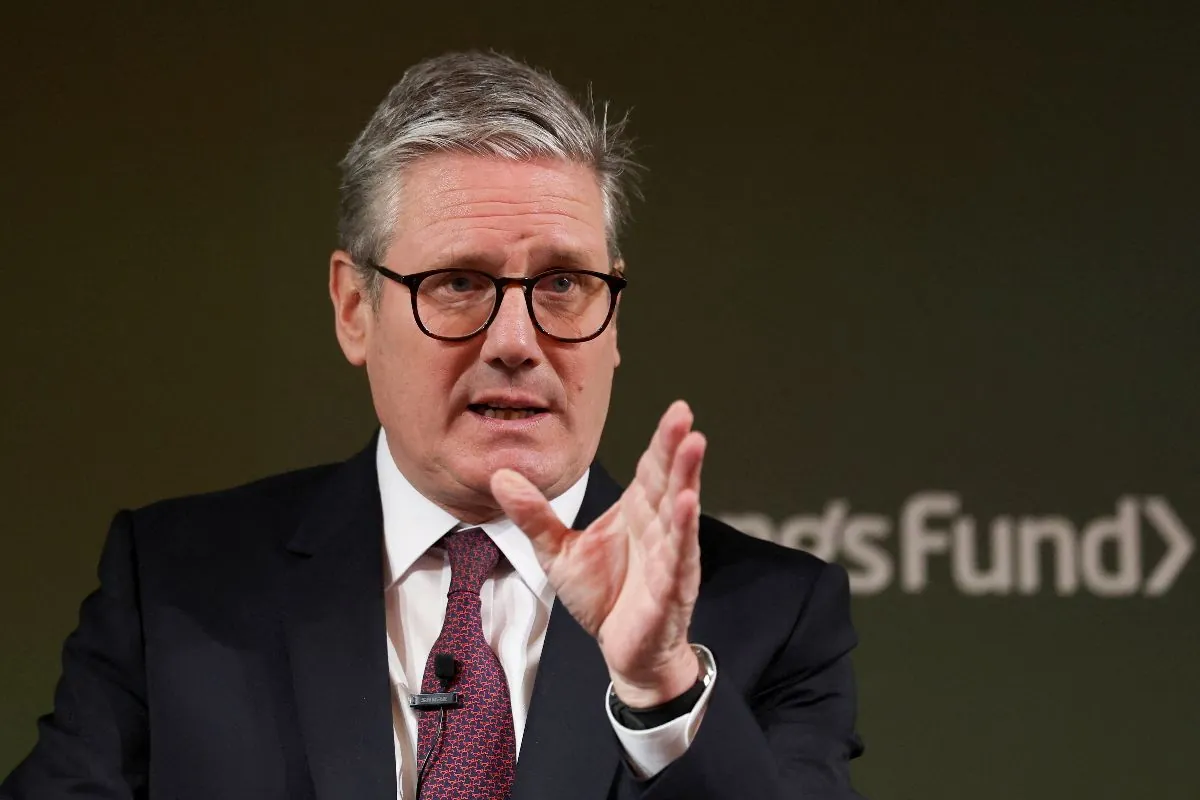UK Labour Party Unveils Ambitious Public Health Reforms to Revitalize NHS
Sir Keir Starmer proposes controversial preventive measures to address NHS challenges. Plans include junk food ad restrictions, energy drink bans for minors, and potential smoking prohibitions in pub gardens.

Sir Keir Starmer, leader of the UK Labour Party, has unveiled a comprehensive plan to address the pressing challenges facing the National Health Service (NHS). The proposed measures, aimed at shifting the focus from treatment to prevention, have sparked discussions about their potential impact on public health and personal freedoms.
The government has announced several initiatives to be implemented in the coming months. By October 2025, a 9pm watershed on junk food advertising and a complete ban on paid online advertisements for such products are set to take effect. Additionally, legislation prohibiting the sale of energy drinks to individuals under 16 is expected to be introduced to Parliament next month.

In a move to improve dental health among young children, supervised toothbrushing programs for pre-school children are slated to begin later this year. This initiative comes in response to the alarming statistic that tooth extraction is the primary reason for hospital admissions among children aged 6 to 10.
Starmer acknowledged the controversial nature of some proposed measures, stating, "I know some prevention measures will be controversial, but I'm prepared to be bold, even in the face of loud opposition." He emphasized the necessity of these changes for the benefit of the NHS, the economy, and future generations.
The Labour Party's approach to healthcare reform is rooted in a preventative model, which aims to address the underlying causes of ill health rather than solely focusing on treatment. This strategy aligns with the NHS's long-term goals, including its target to become the world's first net-zero national health service by 2040.
"We are going to have to get into that space because we have got more and more conditions, we are living for longer. This is a good thing, but simply putting more and more money into the NHS as it is currently configured isn't going to work. We need preventative measures as well and we will set those out in the 10-year plan."
The proposed reforms come at a critical time for the NHS, which has been facing significant challenges. The health service, established in 1948 as part of post-World War II social reforms, has been under increasing pressure due to an aging population, rising treatment costs, and workforce shortages. In 2019, the NHS reported over 100,000 vacancies, highlighting the urgent need for comprehensive reform.
Wes Streeting, the Health Secretary, has pledged to be "tough on ill health, tough on the causes of ill health," echoing the rhetoric of previous Labour governments. However, he has also stated that there are no current plans for new taxes on foods high in salt or sugar, citing concerns over the ongoing cost-of-living crisis.
The Labour Party's approach to NHS reform extends beyond public health measures. Starmer has emphasized that future funding for the health service will be contingent on meaningful reform, stating, "No more money without reform." This stance reflects the party's commitment to addressing systemic issues within the NHS, which has been criticized for long waiting times and resource constraints.
As the UK approaches the next general election, the Labour Party's NHS reform plans are likely to be a key issue. The success of these initiatives will depend on their implementation and public reception, as well as their ability to address the complex challenges facing one of the world's largest healthcare systems.


































